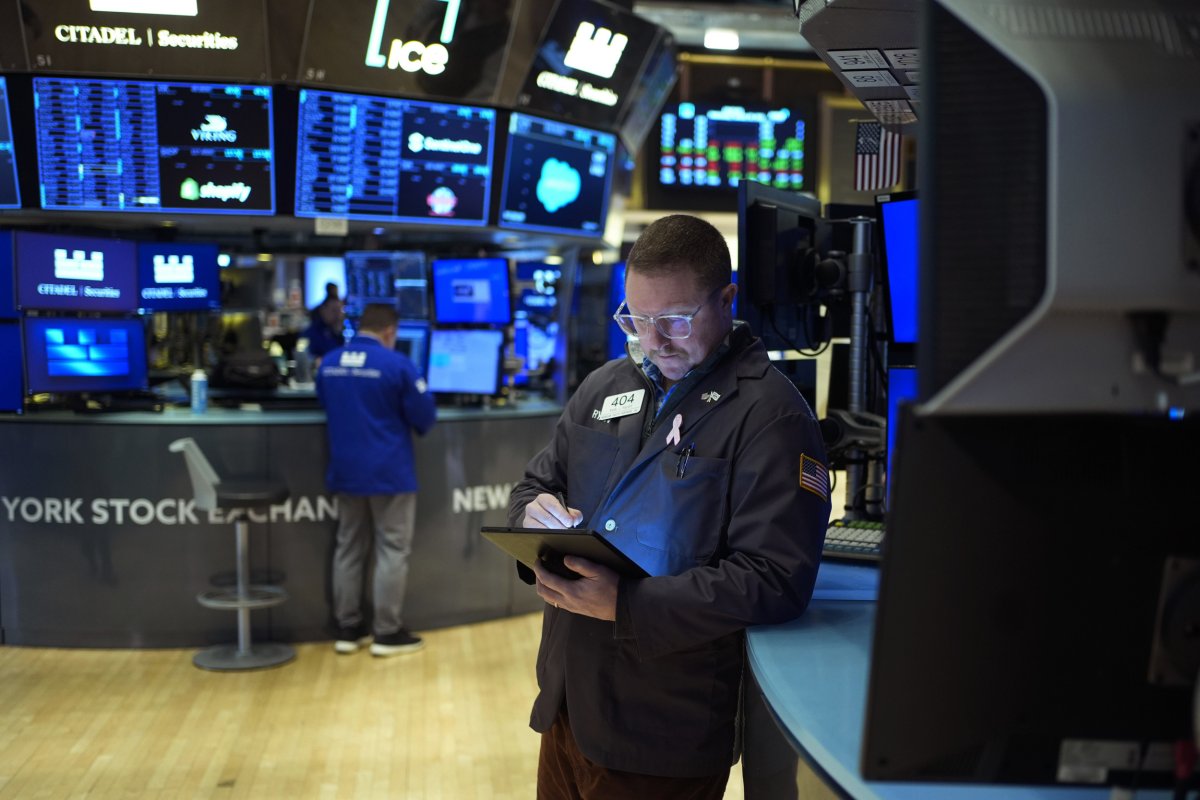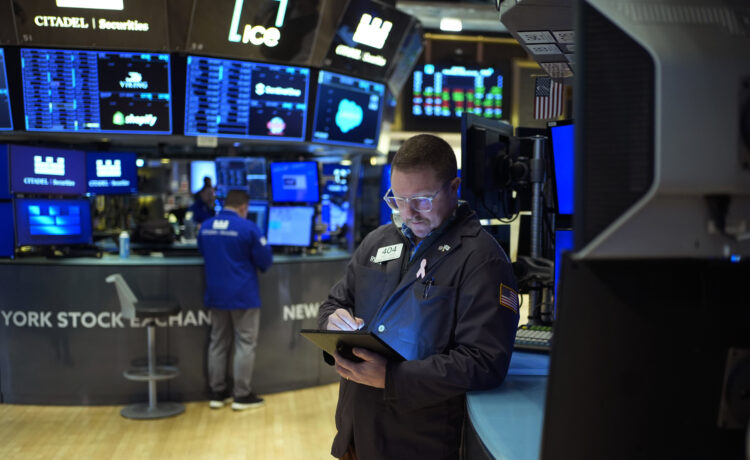Major U.S. stock indexes fell early Monday amid fears of a trade war triggered by President Donald Trump imposing steep tariffs on Canada, Mexico and China.
Shortly after markets opened, the S&P 500 sank 1.7 percent, following similar losses for markets across Asia and Europe. The Dow Jones Industrial Average fell 557 points, and the tech-heavy Nasdaq composite dropped 2.1 percent.
Why It Matters
Investors reacted negatively to Trump’s announcement, concerned about the potential for higher inflation, disrupted supply chains, and slower economic growth. The new tariffs are expected to increase costs for businesses and consumers, adding pressure to an economy already facing uncertainties.
In response to the U.S. tariffs, Canada and Mexico announced retaliatory measures, imposing tariffs on select American goods. China, meanwhile, signaled its intention to challenge the tariffs at the World Trade Organization, raising the prospect of a prolonged trade dispute.

Seth Wenig/AP Photo
What To Know
On Monday, global stock markets experienced significant declines following Trump’s announcement of new tariffs on key U.S. trading partners. The tariffs, set to take effect on Tuesday, include a 25 percent levy on imports from Mexico and most goods from Canada and a 10 percent tariff on goods from China.
The move has heightened fears of escalating trade tensions and potential economic repercussions.
European markets saw significant losses. France’s CAC 40, Germany’s DAX, and Britain’s FTSE 100 declined in early trading. The FTSE 100 fell by around 1.25 percent, reflecting concerns over the broader impact of U.S. trade policies on European economies. Analysts noted that industries reliant on exports, including the automotive and manufacturing sectors, were among the hardest hit.
In Asia, stock markets suffered similar setbacks. Japan’s Nikkei 225, Australia’s S&P/ASX 200, and South Korea’s Kospi all recorded sharp declines. Japanese car manufacturers were particularly affected, as fears of supply chain disruptions and reduced exports weighed heavily on investor sentiment.
Currency and commodity markets also felt the impact of the announcement. The U.S. dollar strengthened sharply, while the Canadian dollar and Mexican peso plunged to multiyear lows. China’s yuan also slid in offshore trade, reflecting concerns over potential retaliatory measures.
Meanwhile, Brent crude oil prices saw an uptick, though worries over a potential economic slowdown limited the gains. Gold prices also rose as investors sought safe-haven assets.
What Are People Saying
Yeap Jun Rong, market strategist at IG, to the Associated Press: “The implications for trade restrictions could result in reduced global trade flows, supply chain shifts which could mean higher costs for businesses, and higher inflation.”
Canada’s former Deputy Prime Minister Chrystia Freeland, Monday on Morning Joe: “This is really, it is self-mutilation. America is hurting itself. We think that it is utterly crazy. And we’re also really, really angry at you.”
Representative Marjorie Taylor Greene, on X, formerly Twitter: “We will win this trade war. America is tired of getting kicked in the teeth by the rest of the world and Americans are fed up with American leaders that are weak and afraid. Tariffs are a powerful, proven source of leverage for protecting our national interest.”
What Happens Next
The global reaction to Trump’s tariff decision underscores the market’s deep concerns about the future of international trade. While some investors hope for negotiations to ease tensions, the immediate impact has been uncertainty and financial turbulence.
Goldman Sachs believes the tariffs will be short-lived, according to a note on Sunday seen by Reuters.
Update 02/03/25, 10:32 a.m. ET: This article was updated with additional information.














